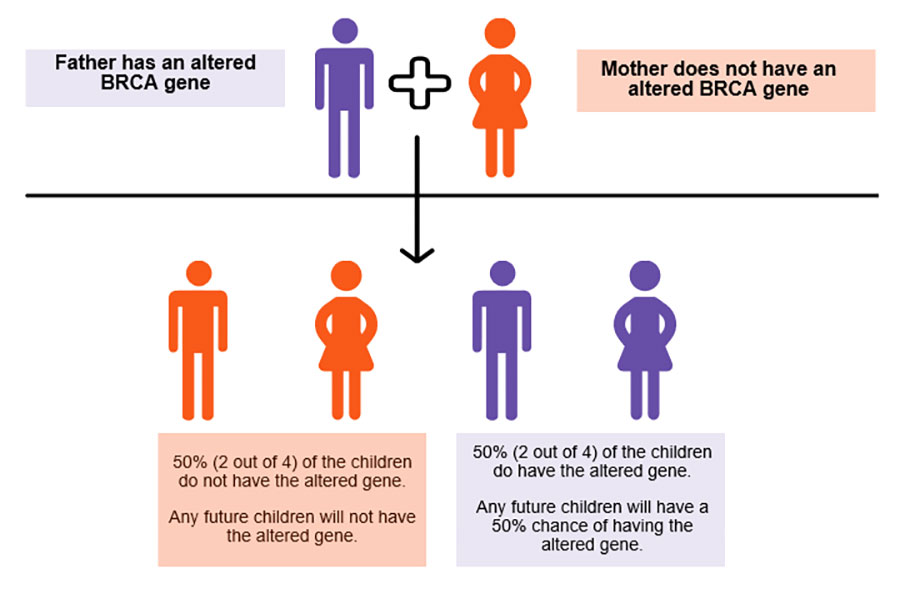What would the results mean for my family or future family?
Main points
- If you have an altered BRCA gene your family members can choose to get tested. Only adults can be tested.
- If your family members are found to have the altered BRCA gene they can choose to do nothing, have increased screening, take medication which helps to reduce the chances of cancer, have risk-reducing surgery and making healthy lifestyle choices.
- If you have an altered BRCA gene, you will be advised to talk to your family members about this. The genetics clinic can support you with this.



